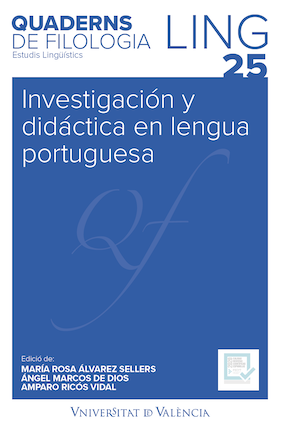The emergence of irei+infinitivo as an expression of the futurity in Portuguese
DOI:
https://doi.org/10.7203/qf.0.19069Keywords:
Futurity, portuguese, periphrasis, grammaticalization, synthetic future, analytical future. Abstract
Abstract
The periphrasis ir+infinitive has replaced the synthetic future - I laugh with the temporal value of futurity in the oral language of Portuguese in all its diatopic varieties and in almost all registers, except in the most cultured register, and in the written language in registers not cultured according to a grammaticalization process common to several languages. In all the varieties of current portuguese the irei + infinitive periphrasis with the auxiliary verb in the future has emerged in the last century. The purpose of this article is to study the mode-temporal values of this construction that presuppose a further degree in the grammaticalization of ir + infinitive. To achieve our objectives, we carry out a brief synchronous and diachronic analysis of relevant occurrences based on reference corpora.
 Downloads
Downloads
Downloads
Published
How to Cite
-
Abstract536
-
PDF (Español)446
Issue
Section
License
 Este obra está bajo una licencia de Creative Commons Reconocimiento-NoComercial-SinObraDerivada 4.0 Internacional.
Este obra está bajo una licencia de Creative Commons Reconocimiento-NoComercial-SinObraDerivada 4.0 Internacional.
Authors who publish with this journal agree to the following terms:
- Authors retain copyright and grant the journal right of first publication with the work simultaneously licensed under a Creative Commons Attribution License that allows others to share the work with an acknowledgement of the work's authorship and initial publication in this journal.
- Authors are able to enter into separate, additional contractual arrangements for the non-exclusive distribution of the journal's published version of the work (e.g., post it to an institutional repository or publish it in a book), with an acknowledgement of its initial publication in this journal.
- Authors are permitted and encouraged to post their work online (e.g., in institutional repositories or on their website) prior to and during the submission process, as it can lead to productive exchanges, as well as earlier and greater citation of published work (See The Effect of Open Access).



